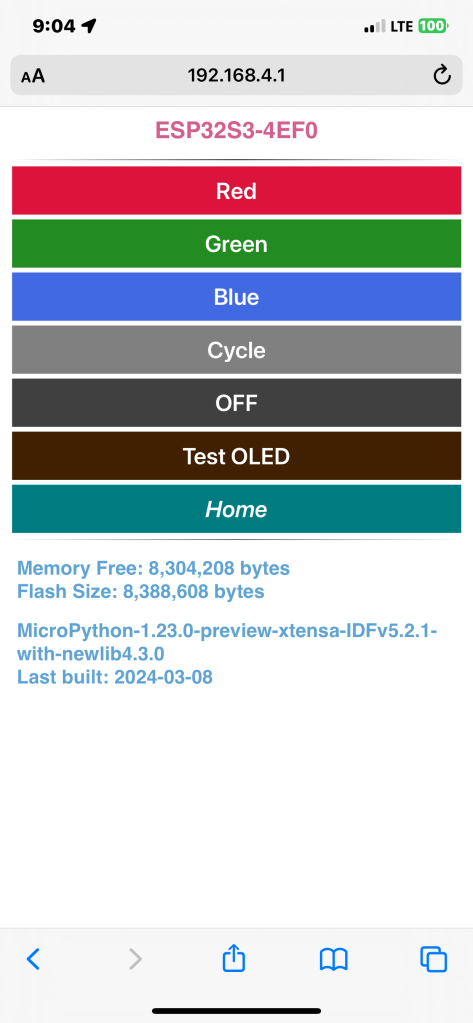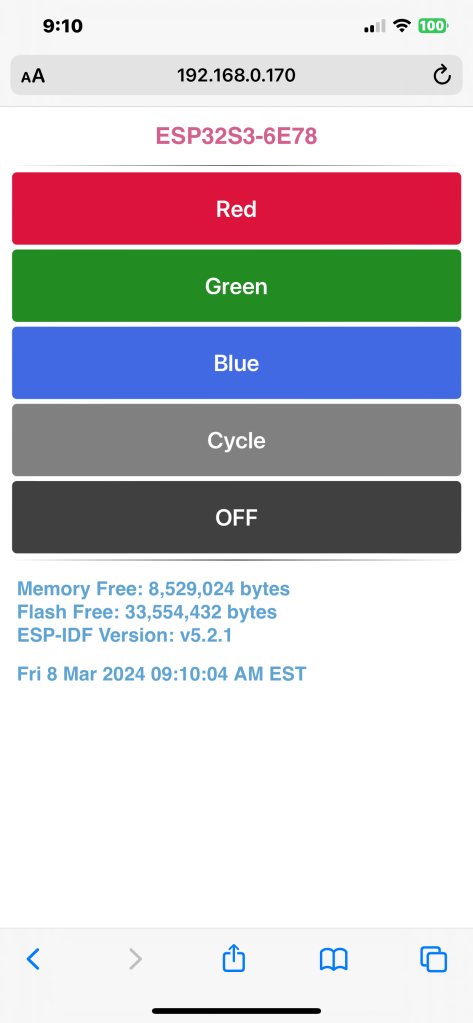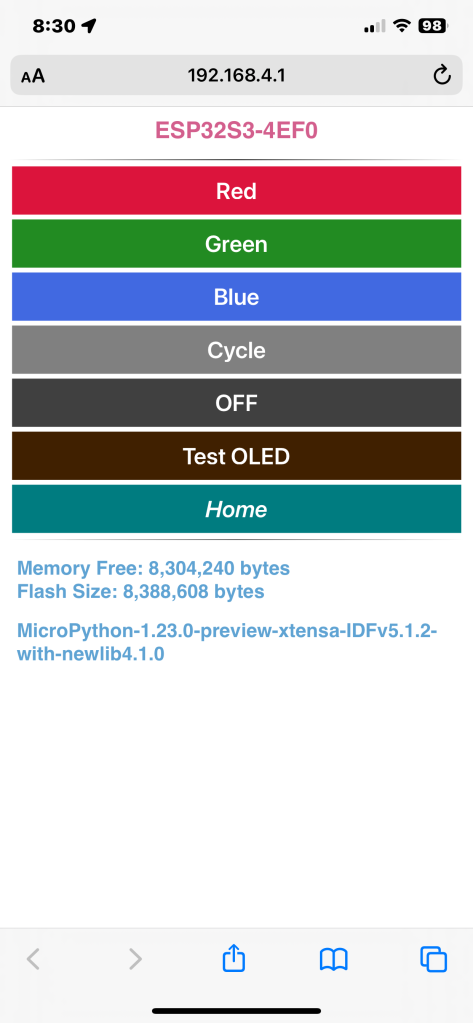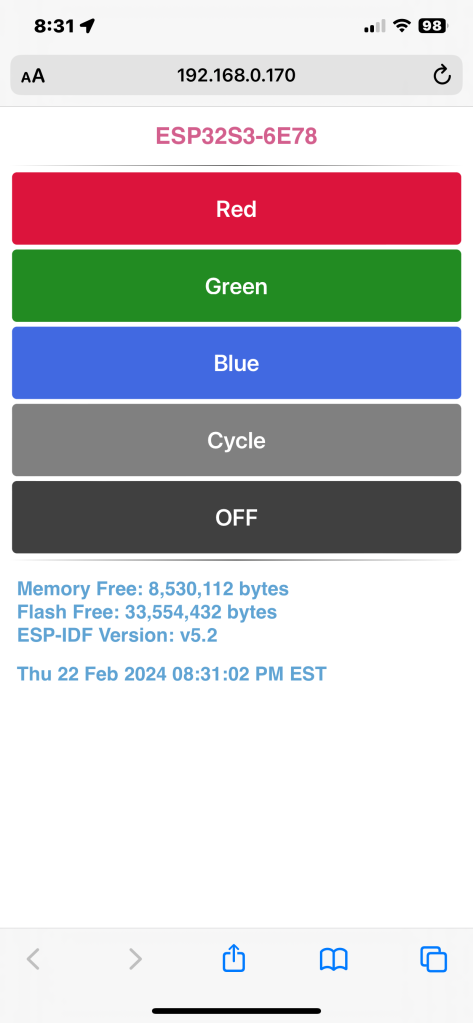
First, the big news. The latest updates to the Micropython code base now allow it to be built with Espressif’s ESP-IDF version 5.2. At the same time these changes were pushed out into the Micropython repository, Espressif dropped ESP-IDF 5.2.1, which I installed on my development system, then used to build my updated Micropython with the latest changes noted above. Micropython successfully built and I was then able to flash one of my ESP32-S3 development boards, and away I went with my stand-alone WiFi test board.

I then used the same ESP-IDF tool chain to build one of my C++ embedded applications, in which it joins my home WiFi access point and allows me to then bring up its simple web page. Again, everything built and flashed. This is with an ESP32-S3 development board with 32 MiB flash and 8 MiB external ram.
CircuitPython Update
One other update comes from CircuitPython: they’ve just dropped version 9.0.0 release candidate 0. I’ve downloaded and installed it on two of my boards that can handle it, and so far it’s doing just fine. If you like CircuitPython and use it for ESP32-S3-based boards, then by all means consider downloading and installing this version. It’s clean and stable enough for you to work with. Quoting from the release note, the key features out of many that caught my eye are:
- Merge updates from MicroPython v1.19.1, v1.20.0, and v1.21.0.
- Espressif: update to ESP-IDF v5.1.3.
Micropython and CircuitPython are moving rapidly, adding support for the latest boards as well as adding new functionality for existing devices, especially on the Espressif side of things.



You must be logged in to post a comment.